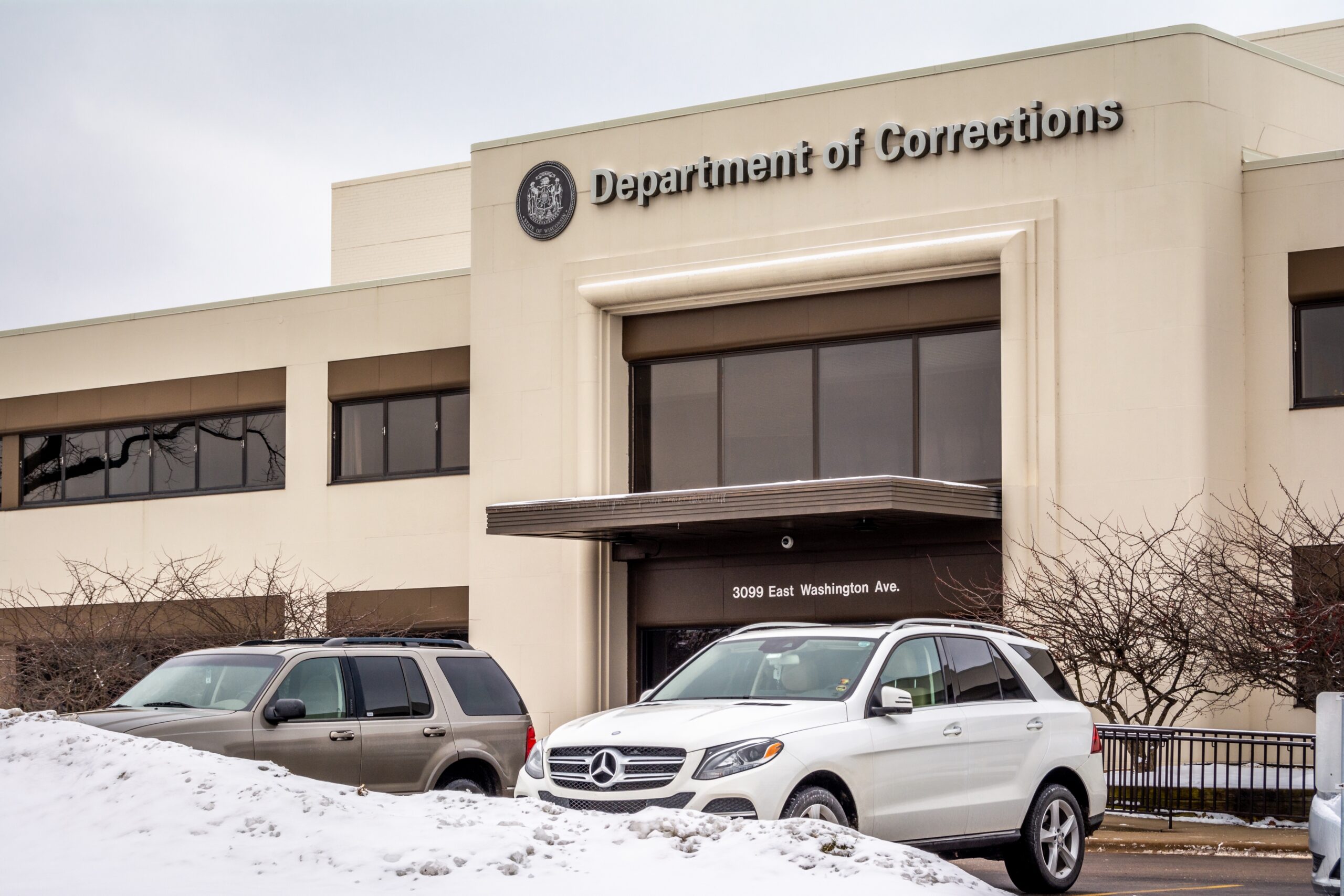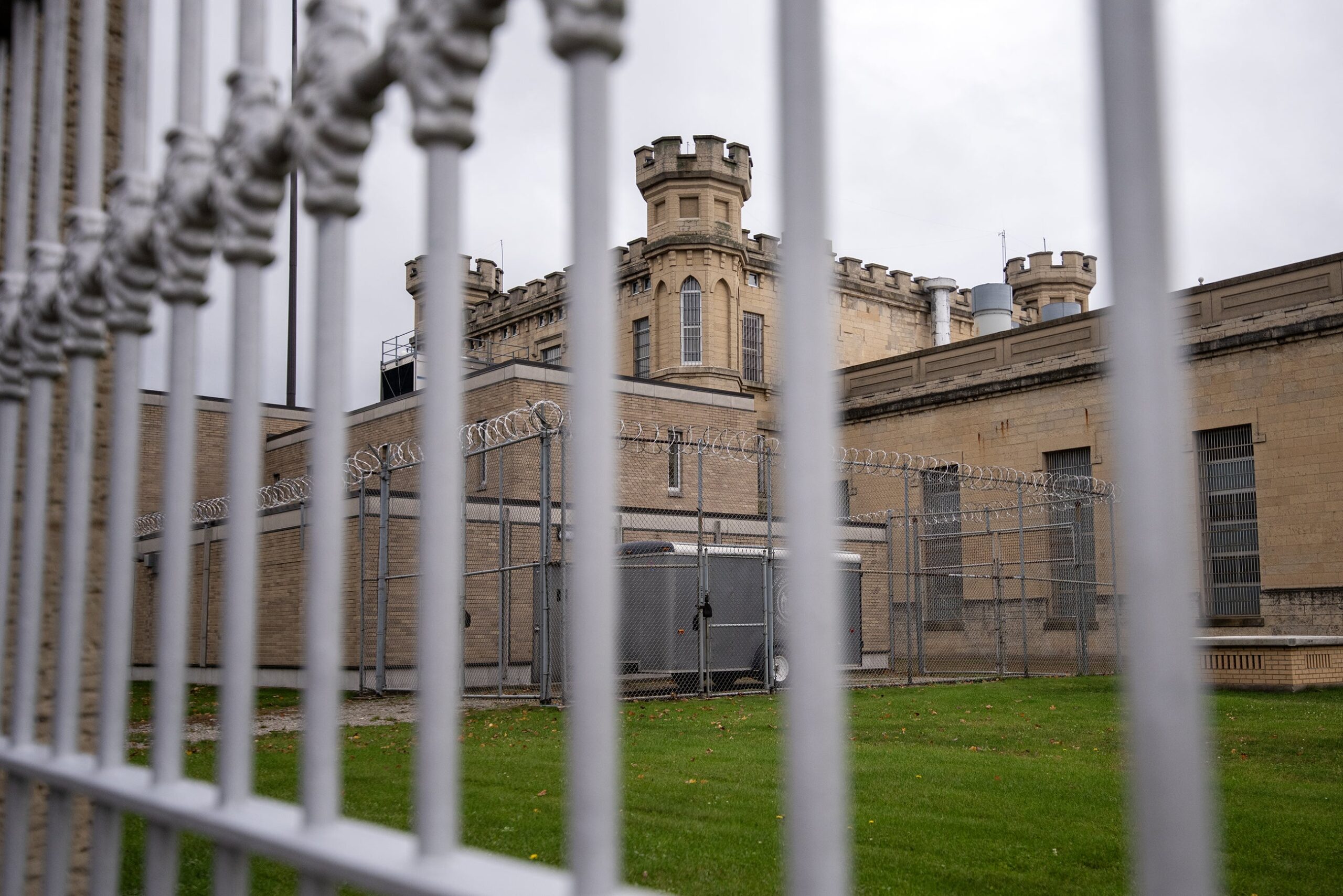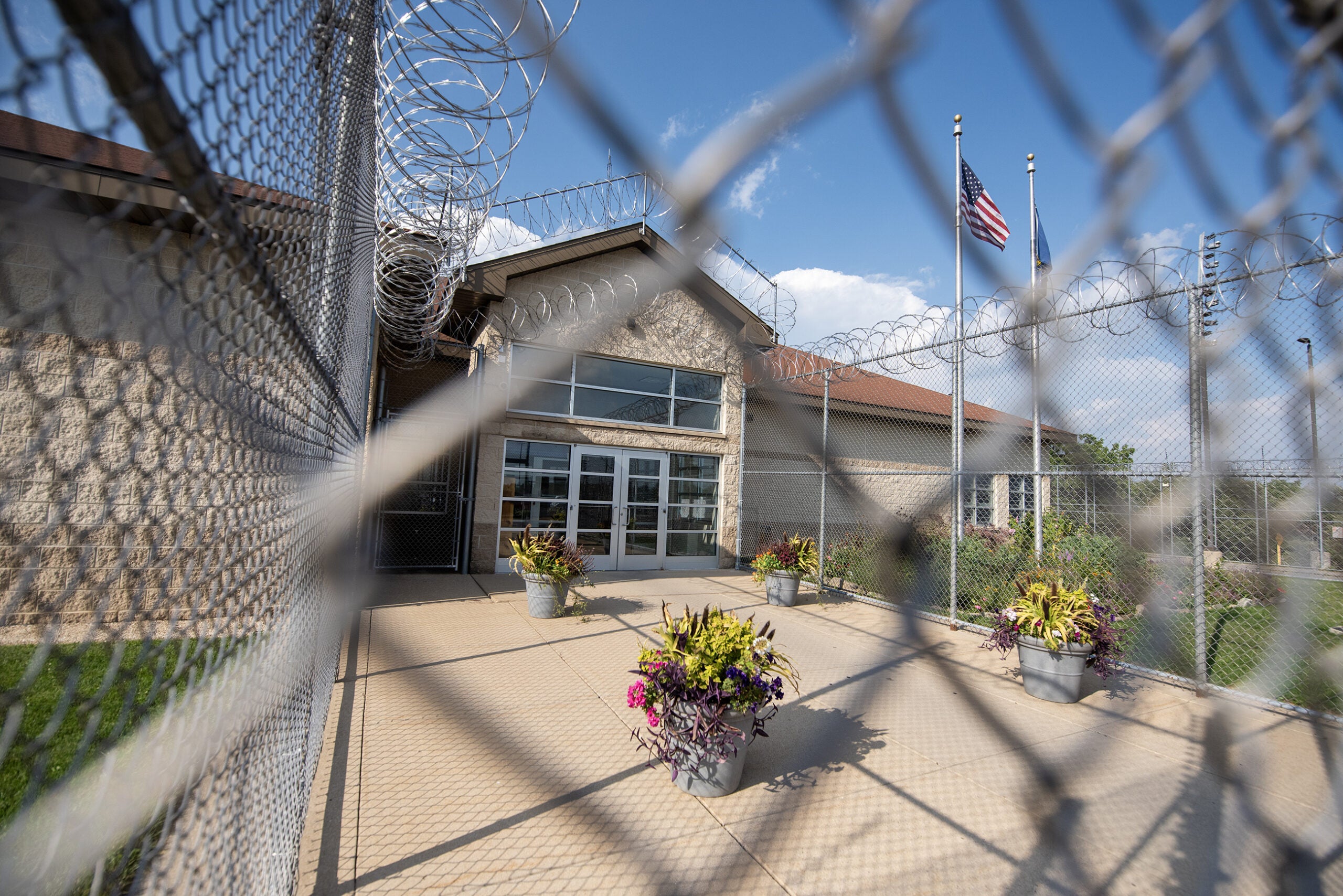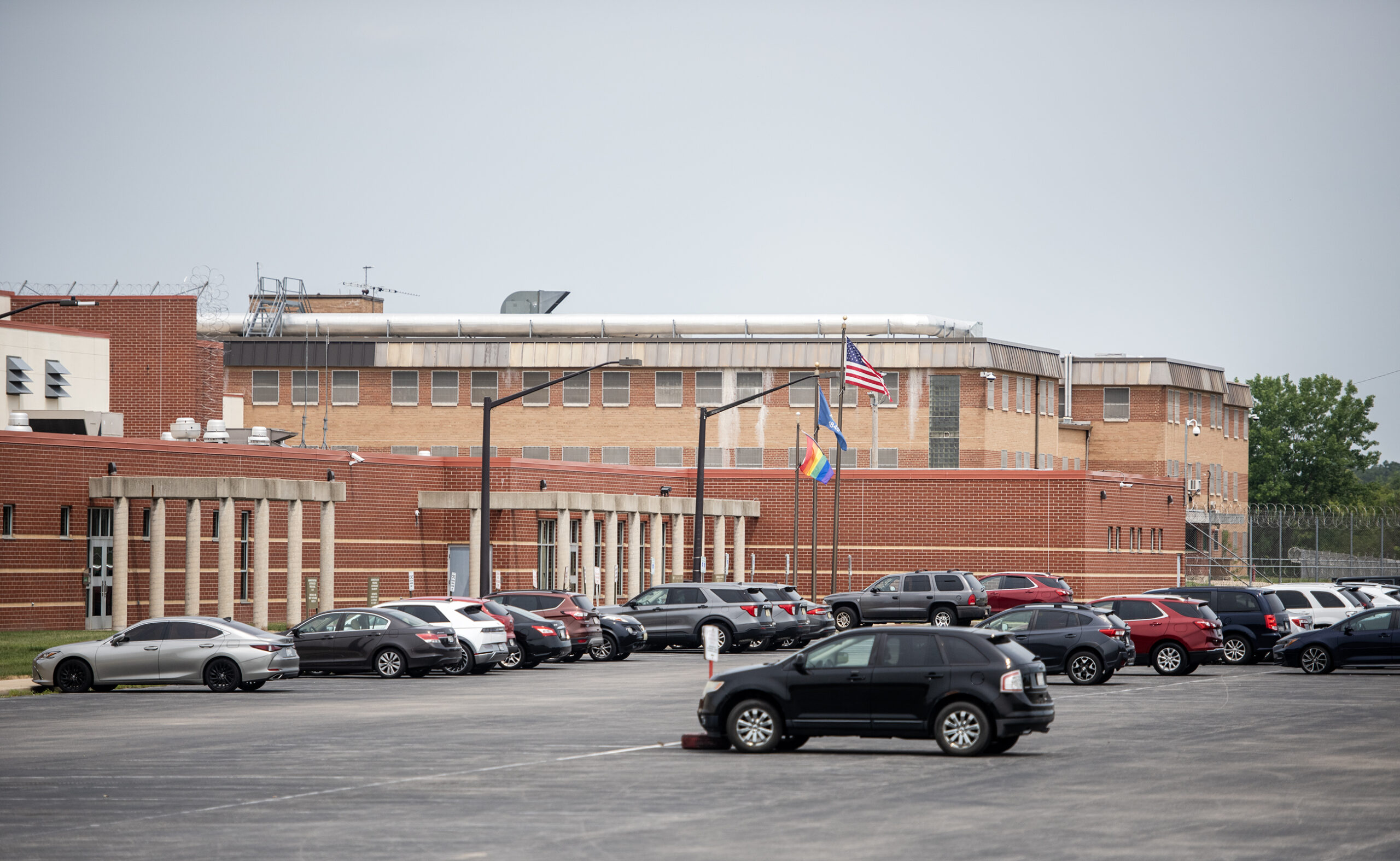Wisconsin discharges thousands of incarcerated people each year. A package of bills in the state Legislature aims to expand the amount of assistance those people receive while making the transition out of prison.
At the state Department of Corrections, Ray Woodruff oversees existing efforts to provide reentry assistance. The agency promoted him to the role in May after he spent much of the past 14 years managing education and employment programs.
Woodruff recently joined Wisconsin Public Radio’s “The Morning Show” to discuss the work of securing jobs and housing for formerly incarcerated people and how the new proposals in the Legislature could grow those efforts.
News with a little more humanity
WPR’s “Wisconsin Today” newsletter keeps you connected to the state you love without feeling overwhelmed. No paywall. No agenda. No corporate filter.
“There’s a lot of logistical things that we still need to coordinate and figure out,” Woodruff said. “But we’re certainly open to working with our partners to really define what would be valuable and make the most sense for our population.”
The following was edited for brevity and clarity.
Kate Archer Kent: What are the biggest challenges to finding jobs for newly released prisoners?
Ray Woodruff: Individuals who are exiting incarceration face a host of barriers when reentering the workforce. A criminal record in and of itself tends to be a significant barrier. A lot of folks get weeded out through the process of applying for jobs based on that criminal record. Skill deficits tend to be a significant barrier. We spend a lot of time in the Department of Corrections working on building up education, developing those employability skills and some of those soft skills that can transition from job to job. Transportation tends to be a significant issue for our population. If they are able to get a job but they don’t have reliable transportation or they don’t have a license, these things all can become barriers that ultimately prevent people from engaging meaningfully in the workforce.
If you can imagine being incarcerated for any amount of time, perhaps several years, (and) the challenges that await you as you come back to the community from a very structured, secure setting. Things may have changed significantly since you became incarcerated. You’re trying to find a job but also those basic things that we all need — shelter, transportation and food — all these things that we take for granted.
KAK: Four bills in the Legislature this year aim to improve the employment and housing prospects of formerly incarcerated people. One proposal would expand eligibility for earned early release. How does the Earned Release Program work now?
RW: Earned release right now is fairly limited in scope to individuals who have significant substance use disorder, issues that need to be addressed. Sentencing court can identify folks who have this very specific need, and if they complete certain types of programs, they may be eligible to petition the court to earn their release early from incarceration. But that’s really the only opportunity through earned release at this time.
KAK: What changes would this legislation bring? Who would additionally become eligible for earned early release?
RW: We’ll have to wait and see ultimately how the final legislation is written. But ultimately, this would allow people who complete certain types of education- or employment-related programming to potentially petition the court for early earned release. That could be applicable to a significant number of people. Typically people who have been convicted of certain types of violent crimes would not be eligible for earned early release.
KAK: One bill in the Legislature would establish a telephone hotline for employers who are looking to hire formerly incarcerated people. Could this idea address workforce shortages in Wisconsin?
RW: At the (Department of Corrections), we’ve worked for more than a decade to integrate our services with the Department of Workforce Development, the workforce development boards throughout the state and with employers to try to address some of those workforce shortages that exist. We understand the reality of the job market out there. We also understand that we have a population of individuals who are very skilled, go through specific programs and are able to address those workforce shortages.
So, should this bill pass, we will be well-positioned to provide resources to employers in need of workers.

KAK: Corrections operates reentry centers at 11 state facilities. One bill would have the department contract with an outside agency to establish a community reentry center. How would a community reentry center be different from the existing centers?
RW: We have 11 correctional institution-based job labs where individuals can utilize resources in the community that haven’t traditionally existed in corrections. At these locations, individuals can develop resumes and search for real-time jobs that exist out in the community. They can apply for jobs, interview for jobs and accept jobs, all prior to release.
The community-based reentry center (would be) like a one-stop-shop location out in the community where individuals could meet with a housing representative or somebody from another state agency — maybe the Department of Transportation to work on obtaining their driver’s license.
My goal is that we can continue to coordinate and collaborate with various stakeholders, whether it’s nonprofits, other state agencies and religious groups, because we’re just one piece of the puzzle. We make a concerted effort wherever we can to collaborate and work with others, whether that’s through directly contracted programming or coordinating our services in a more meaningful way to better provide wraparound services for clients who experience many different barriers as they reenter the community.
We have several minimum community custody centers that are located throughout the state where individuals who are approaching their release date are eligible for work release. They may be currently incarcerated but are able to be out in the community working alongside members of the public.
We often discover that the individuals we send to employers are motivated to do well. They have skills and they provide a service to those companies. We do a lot of analysis and evaluation of our population as they approach their release date to determine who is most appropriate for those work release opportunities.
KAK: What programs currently exist to find people housing and help them avoid becoming homeless after incarceration?
RW: We have various types of housing that we actually contract for as an agency, whether that be temporary housing or short-term, secure settings. Our agency makes a concerted effort to ensure that folks have some type of housing after their release.
That said, there are always individuals who choose not to avail themselves of those opportunities. It is a continual struggle, to be quite honest, for our agency, because we know there is a lot of need amongst our population and we absolutely want to meet that need. But it’s difficult. One of the pieces of legislation seeks to enhance the concept of rental readiness for our population. I’m certain we would work with our partners to make that a reality.
Links to the legislation
2023 Assembly Bill 180 / 2023 Senate Bill 169: Relating to establishing a hotline for employers interested in hiring individuals with a conviction record.
2023 Assembly Bill 181 / 2023 Senate Bill 170: Relating to earned release for inmates upon the completion of an employment readiness training program.
2023 Assembly Bill 182 / 2023 Senate Bill 171: Requiring the Department of Corrections to include training on rental readiness in its prerelease reentry programming and to issue a certification of rental readiness to individuals who successfully complete the training.
2023 Assembly Bill 183 / 2023 Senate Bill 172: Relating to establishing and operating community reentry centers.
Wisconsin Public Radio, © Copyright 2026, Board of Regents of the University of Wisconsin System and Wisconsin Educational Communications Board.






